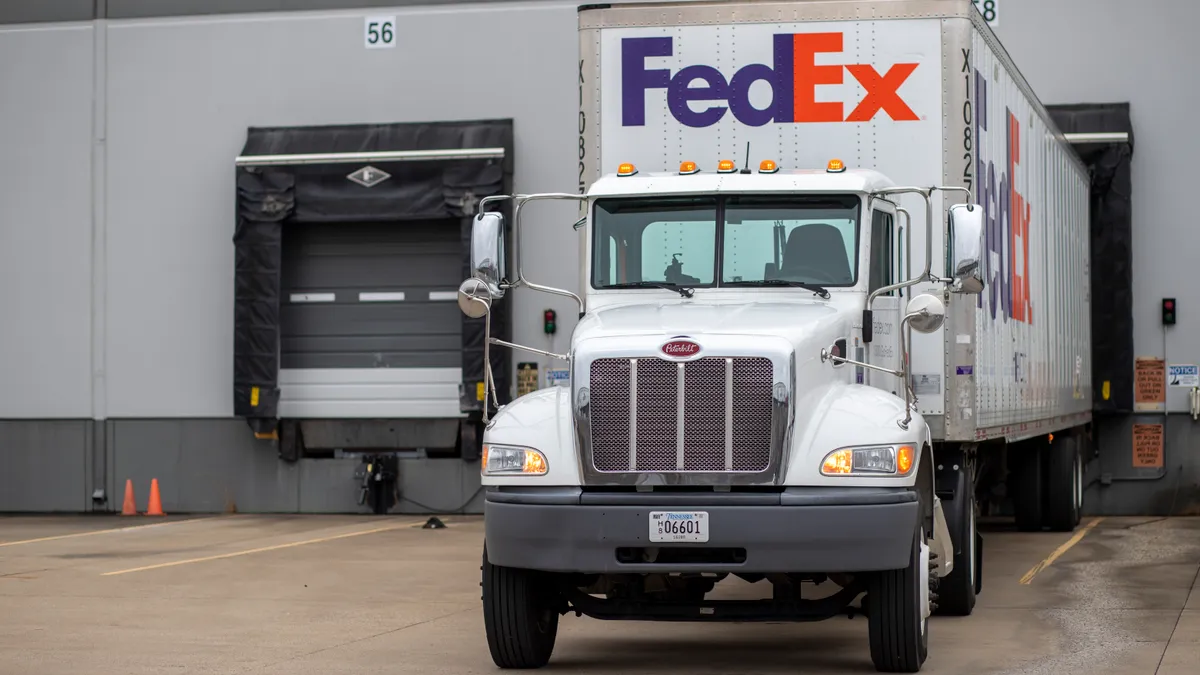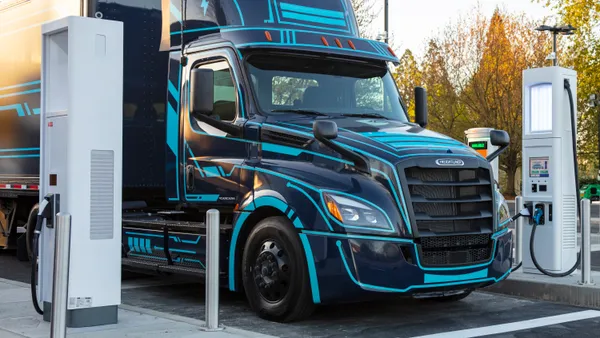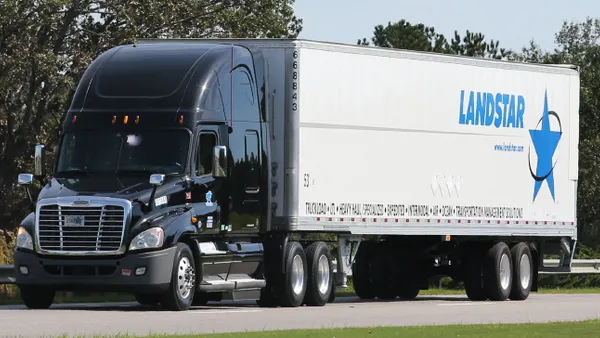Dive Brief:
- Daseke is closely watching the progress of the federal infrastructure bill, Executive Vice President and CFO Jason Bates said during an earnings call Tuesday. "There's no question that our end-market exposure would definitely stand to benefit from any type of infrastructure bill that comes to fruition," he said.
- Flatbed demand across the industrial market has improved to near pre-pandemic levels, helping Daseke reach almost a 39% YoY increase in rate per mile, Bates said. An infrastructure bill would "certainly extend the runway of a favorable rate environment," CEO Jonathan Shepko added.
- Senators voted last week to advance a bipartisan infrastructure bill, of which the full text was released this week. It's now subject to debates and amendments before it comes to a final vote. CNBC reported Senate Majority Leader Chuck Schumer aims to hold a vote before recess begins Aug. 9.
Dive Insight:
The passage of a federal infrastructure bill would have direct and indirect consequences — potentially positive and negative — for trucking.
Repairing the country's deteriorating infrastructure would be a benefit to trucks that must traverse them, while physically doing those repairs would be a boon to haulers in that sector, such as Daseke.
Construction work could pull equipment away from transportation companies and put more flatbeds out of circulation. The result potentially creates more dependence on owner-operators, as well as increased reliance on spot loads.
"I think it's safe to say that that's something that we're hoping to see," Bates said of the infrastructure bill during the call, adding, "it would definitely help elongate what's been a pretty constrained supply-demand environment." That constraint helps life rates.
Flatbed has experienced significant imbalances in supply and demand during the pandemic. Capacity tightened the last week in July compared to the previous week, with DAT reporting an 8% decrease in equipment posts. Spot rates in the segment have been climbing since last summer and are about 50 cents per mile higher YoY.
Load-to-truck ratios
Residential construction is one industry keeping the flatbed sector busy, DAT Principal Analyst Dean Croke wrote in a blog post last week.
Housing starts were up 6.3% in June over the previous month, according to the U.S. Census Bureau's latest data. According to the bureau, more than 1.6 million new privately owned housing units were started in June.
"Construction has been strong, steel has been strong," Bates said, also noting high-security cargo, commercial glass and agriculture. The wind-energy sector, which was a boon to business in 2020, has died down, he said. And aerospace hasn't yet rebounded from its pandemic-induced slump.
The pandemic also has had impact on construction; while it's booming now, it's not guaranteed to last. Daseke has touted its diverse portfolio and approach to niche markets. Shepko said the company implemented "aggressive cost control measures," decreased its fleet and repositioned assets to focus on markets less affected by the volatility of the coronavirus.












